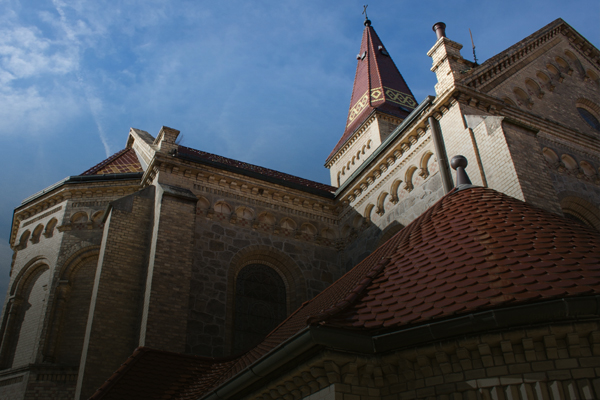
Pelagianism (5th Century)
This heresy describes man’s human nature as basically good; according to Pelagianism, man did not inherit original sin from Adam. The heresy taught humans only learn how to be bad from the bad examples of their own community. In essence, according to Pelagianism, we are all neutral in our nature and have the ability to come to faith and attain heaven under our own powers and without the Grace of God. This worldview denies we become righteous in the eyes of God through the work of Jesus on the cross, but instead claims our own ability to imitate the life of Christ is all that is needed.
Leader(s) in the Heresy: Pelagius (354 – 440AD)
Corrector(s) of the Heresy: The Councils of Carthage (412, 416 and 418AD) condemned the heresy, but many other councils also condemned the teaching throughout history.
In addition to misinterpretations about the nature of humans, a number of historic heresies have emerged over the centuries related to the nature and role of humans in the Church:
Montanism (2nd Century)
This heresy was an apocalyptic movement, predicting the eminent end of the world and claiming the heresy’s three leaders (Montanus, Priscilla and Maximilla) were able to receive revelation directly from the Holy Spirit. In fact, Montanus claimed to be the “Paraclete” (the ‘comforter’ or ‘helper’) Jesus promised. Montanus’ movement also focused on the continuance of spiritual gifts, such as speaking in tongues, ecstatic utterances and prophecy.
Leader(s) in the Heresy: Montanus and two women, Priscilla and Maximilla. Even Tertullian converted to Montanism later in life
Corrector(s) of the Heresy: Jerome wrote a letter to a woman named Marcella denouncing the Montanists, and Justinian, ordered John of Ephesus to lead an expedition to Pepuza to destroy the Montanist shrine in the 6th Century
Encratitism (2nd Century)
This heresy is named after the Greek root word, “enkrateia” which means “continence”. Encratites were ascetics who denied themselves alcohol, animal products and sex. This denial was a requirement for Salvation, as Encratites interpreted the story of Adam and Eve and passages such as 1 Corinthians 7:3-6 to support the idea humans must not engage in sexual intercourse. They taught people were to be married to God, not to each other.
Leader(s) in the Heresy: Tatian (the Assyrian Christian leader, 120-173AD)
Corrector(s) of the Heresy: Hippolytus wrote against the heretical group, and Theodosius pronounced an Edict condemning the group in 382AD
Donatism (4th Century)
This heresy appeared after the fierce persecution of the Roman Empire. It glorified those who stood firm in their faith and died as martyrs. Only morally ‘worthy’ individuals could perform church functions and rituals. Only the most dedicated Christians were seen as true believers, and a person’s alleged holiness was the determining factor in whether or not they could hold an office. As a result, if a believer’s baptism was performed by someone who had a serious sin in their past, the baptism was seen as invalid. In a similar manner, if the Lord’s Supper was performed by someone who had this kind of sin in their past, it was also seen as invalid.
Leader(s) in the Heresy: Donatus the Great (Bishop of Casae Nigrae)
Corrector(s) of the Heresy: Augustine of Hippo rejected the teaching and eventually influenced the Donatists to abandon their belief
Iconoclasm (7th and 8th Century)
Followers of this heresy believe it is sinful to make pictures or statues of Jesus (or any other saints). The name comes from the word meaning literally, “icon smashers”, and arose initially in the east where the Eastern Church had to respond to the Islamic disdain of imagery.
Leader(s) in the Heresy: Emperor Leo the Isaurian and Constantine (Bishop of Nacolia)
Corrector(s) of the Heresy: Pope Gregory II and Gregory III (who called a Synod at St. Peter’s in 731AD)
These heretical movements (related to the nature of man and the role of the Church) seem to recur more often than heresies related to the nature of God, Jesus and Salvation. If you observe the Christian culture carefully with these historic distortions in mind, you’ll start seeing them in the shadows of several current movements within Christendom. That’s why it’s so important to be familiar with these historic heresies. The philosopher and poet, George Santayana, penned the famous line: “Those who cannot remember the past are condemned to repeat it.” The more we become familiar with the heresies of the past (and the Biblical reasons why we reject such false teaching), the less likely we will be to embrace them once again.
If you observe the Christian culture carefully with these historic distortions in mind, you’ll start seeing them in the shadows of several current movements within Christendom. Share on X
J. Warner Wallace is a Dateline featured Cold-Case Detective, Senior Fellow at the Colson Center for Christian Worldview, Adj. Professor of Christian Apologetics at Talbot School of Theology, Biola University, author of Cold-Case Christianity, God’s Crime Scene, and Forensic Faith, and creator of the Case Makers Academy for kids.
Subscribe to J. Warner’s Daily Email
J. Warner Wallace is a Dateline featured cold-case homicide detective, popular national speaker and best-selling author. He continues to consult on cold-case investigations while serving as a Senior Fellow at the Colson Center for Christian Worldview. He is also an Adj. Professor of Christian Apologetics at Talbot School of Theology, Biola University, and a faculty member at Summit Ministries. He holds a BA in Design (from CSULB), an MA in Architecture (from UCLA), and an MA in Theological Studies (from Gateway Seminary).

































Pingback: Why Christians Hold Truth in High Regard | CrossExamined.org
Pingback: Historic Heresies Related to Nature of God the Father, the Nature of Salvation, the Nature of Man and the Role of the Church | Truth2Freedom's Blog
Pingback: The Daily Roundup: 20 February 2014 |
Pingback: Historic Heresies Related to the Nature of Man and the Role of the Church | Cold Case Christianity – Reformed faith salsa style